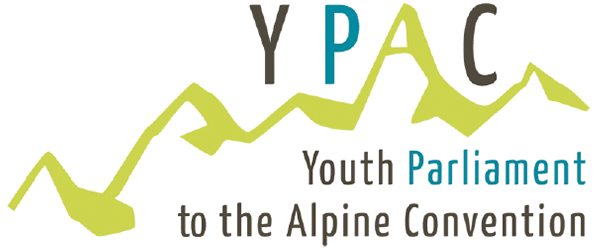

Partner Schools
Akademisches Gymnasium Innsbruck
Akademisches Gymnasium Innsbruck (AGI) is located in the center of Innsbruck, the capital city of Tyrol (Austria). Next to AGI you can find the State Museum and within five minutes you are in the center of medieval and historic Innsbruck.
In the year 2012 AGI celebrated its 450th anniversary. Founded in 1562, it is the oldest high school in western Austria. Over the centuries, AGI has earned an outstanding reputation for teaching Latin and Greek in combination with programs of all major foreign languages.
Each day about 800 students from Innsbruck and its vicinity come to study at AGI. These students not only profit from their excellent teachers, but also from AGI’s cosmopolitan attitude. For instance, AGI supports students to take part in activities like YPAC or MEP (Model European Parliament) and it encourages them to participate in scientific contests.
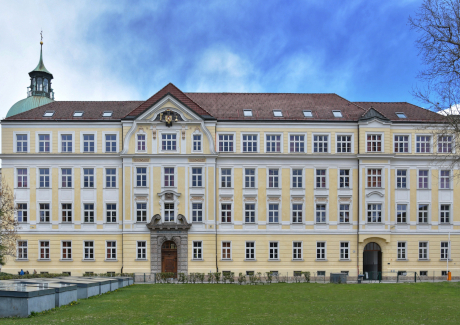
Contact Person
Matthias Danninger
Akademisches Gymnasium Innsbruck
Prof.-Franz-Mair-Gasse/Angerzellgasse 14
6020 Innsbruck, Austria
matthias.danninger@bildung.gv.at
Kantonsschule Trogen
Kantonsschule Trogen (KST), founded in 1821, is located in the northeast of Switzerland. It is the only high school in the canton of Appenzell Ausserrhoden. At first, it was a very small boarding school, housed in only one building, but it expanded steadily. Buildings have been added continuously, and in winter 2011 the newly renovated canteen was opened. Now, the school is composed of twelve buildings, containing, among others, a canteen, a house for students to relax in (the so-called “Mount Olympus”), language and maths buildings, an auditorium and a media library.
The school does not only offer the classical high school education, but a Business School and a Health/Sociology/Pedagogy School are also integrated, in which educational training and practical work are combined. Students can choose their major and minor subjects from a great number of options. For instance, Ancient Languages (Latin, Ancient Greek and Philosophy), Modern Languages (Russian or Spanish), Biology & Chemistry, Economics & Law, Music & Art or Physics & Mathematics may be chosen. Music is of great importance. Therefore, KST has a school orchestra, a number of bands playing different genres, a choir and various ensembles which stage several concerts every year. Plus, there is a drama group.
The atmosphere at KST is very cosy. Since it is a rather small school, people know each other and there are familiar faces everywhere. The former federal councilor Hans-Rudolf Merz and the nobel prize winner in chemistry Jacques Dubouchet attended KST.
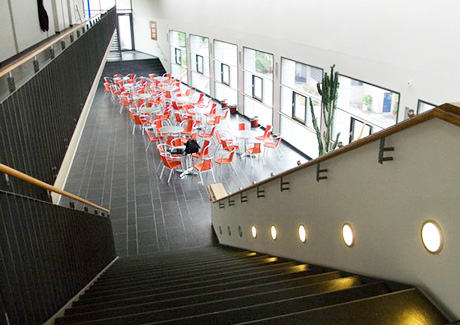
Contact Person
Jens Weber
Gymnasium Trogen
Kantonsschulstrasse 20-29
9043 Trogen, Schwitzerland
jens.weber@kst.ch
Gymnasium Sonthofen
Gymnasium Sonthofen was built in 1975 and has just been refurbished during the last few years. It is now a passive house school and one of the most energy-efficient, eco-friendly and modern schools in Germany. Almost every classroom is equipped with a SmartBoard, an electronic "whiteboard" with touchscreen, which makes it possible to easily access the internet, watch movies and save the work that has been carried out in class.
There are currently about 800 students from grades 5 to 12 and 70 teachers at the school. On average, there are 25 to 30 students per class. Students can choose between two profiles:
- “Naturwissenschaftlich-technologisches Gymnasium” (science and technology)
- “Wirtschafts- und sozialwissenschaftliches Gymnasium” (economics and social science)
After grade 5, students choose between Latin and French as their second foreign language. After grade 7, they decide whether to focus on scientific subjects or economics.
Students from our school have participated in YPAC since 2006.
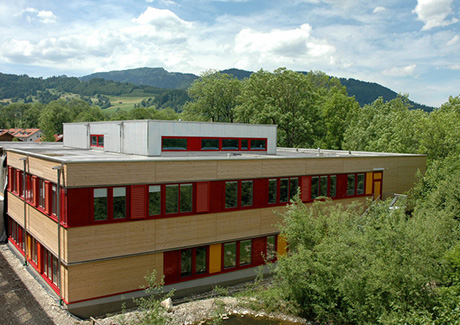
Contact Person
Anna Gombert
Gymnasium Sonthofen
Albert- Schweitzer-Str. 21
87527 Sonthofen, Germany
anna.gombert@web.de
Karolinen-Gymnasium Rosenheim
Karolinen-Gymnasium is situated in Rosenheim, in southern Bavaria. The school was named after Friederike Karoline von Baden, who became Bavaria’s first queen in 1806. Born a Protestant princess, she refused to convert to Catholicism, which was the dominant denomination in Bavaria at the time. It was however not only this scandalous self-determination that characterized her. Her thirst for knowledge, tolerance and commitment to charity are also what Karolinen-Gymnasium wants to epitomize today.
Karolinen-Gymnasium started as an all girls’ school in 1880, but became coed in 1987. Today, students can choose three different profiles: Philology, Science & Technology, or Social Sciences.
To support language learning, different exchange programs and excursions are organized, such as an exchange with Briançon in France and with Vitoria-Gasteiz in Spain. Scientific learning is likewise well-promoted because the school is part of the “excellence network” MINT-EC and students visit famous institutions such as CERN or the German Aerospace Center.
Social Sciences and citizenship education has been essential at Karolinen-Gymnasium since the 1960s. Therefore, it has been part of YPAC since 2007 and hosts presentations by politicians, historians as well as witnesses of historic events. Various extra-curricular activities show the importance of responsible consumption, especially with regard to Fair Trade, and as part of the "School with Courage – School without Racism" project, Karo students discuss and fight discrimination, learning how one’s own ideas and behavior can change the world.
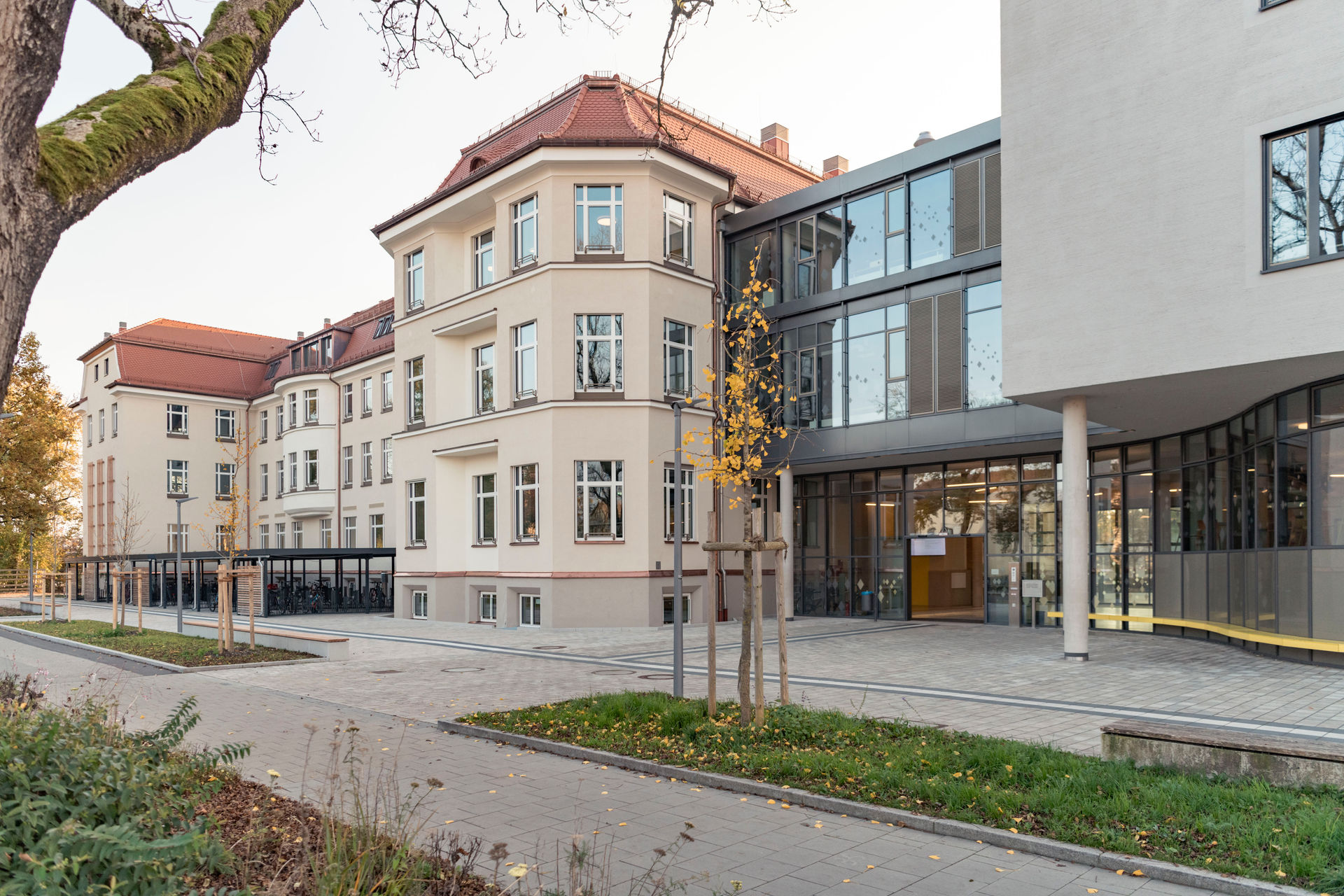
Contact Person
Friederike Fimm
Karolinen Gymnasium Rosenheim
Ebersberger Str. 3
83022 Rosenheim, Germany
friederike.fimm@edu.rosenheim.de
Lycée Frison Roche
The secondary school is placed in the center of Chamonix, the mountaineering capital of the world. Here, students can learn sciences, arts, languages, geopolitics, economy and more in-depth skills of certain sports like skiing or climbing. The school's name, “Lycée Frison Roche”, is derived from a famous French journalist/guide/adventurer/writer, Roger Frison Roche, who died 20 years ago.
Close to Mont Blanc, the roof of Europe, we are proud to have participated in the Youth Parliament to the Alpine Convention since 2011 – for a great future for the Alps.
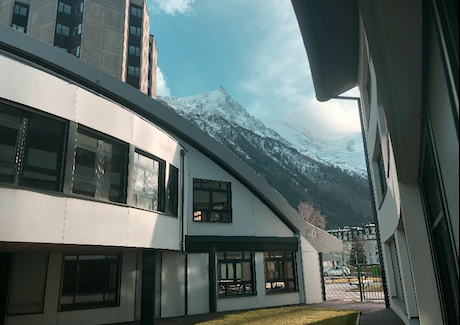
Contact Person
Samuel Poissant
Citée scolaire Roger Frison Roche
8, promenade du Fori
74400 Chamonix-Mont-Blanc, France
spoissant74@gmail.com
Liceo Scientifico 'Leonardo da Vinci'
Liceo 'Leonardo da Vinci' is a five-year state secondary school with an academic focus on science in addition to the humanities. The school is based in Trento and was established in 1975 in a building that dates back to 1863. The premises were first used as a Bishop's Boarding School and then, for a long time, as the Minor Seminary of the Diocese of Trento.
With its approximately 1450 pupils coming from Trento and from the surrounding valleys, Liceo da Vinci is one of the largest secondary schools in the area. Besides providing high-quality education in both sciences and humanities, the school also has a rich history of inclusive teaching and a long-standing tradition of delivering a significant variety of projects and experiences for students, both national and international.
Liceo da Vinci is a new partner school in the YPAC project, which pupils and teachers have joined with great enthusiasm and commitment.
Contact Person
Daniela Ferrari
Liceo scientifico ‘L. da Vinci'
Via Cristoforo Madruzzo 24
38122 Trento (TN), Italy
daniela.ferrari@scuole.provincia.tn.it
Fachoberschule Marie Curie
Merano is situated in the southern part of the Alps and therefore has a Mediterranean climate. This favorable climate has always attracted many tourists, and since the two visits of the Austrian Empress Sissi, Merano has had a tradition of international tourism. Franz Kafka, Stefan Zweig or Sigmund Freud, for example, spent long periods in Merano, staying at the magnificent art nouveau building that formerly was Grand Hotel Emma, which is now our school.
The "Fachoberschule für Tourismus und Biotechnologie - Marie Curie", founded in 1961, has three focus areas: Tourism, Biotechnologies and Biotechnologies for Nutrition Sciences. More than 700 students and about 85 teachers contribute to making our school a colorful and busy educational institution with many activities in and outside the classrooms. Depending on the focus area, the students have a choice of various activities during the five years: CLIL - Content Language Integrated Learning (some subjects are taught partially in Italian, English or French), intensive language courses in French or English speaking countries, an exchange program in cooperation with the Guilin University of Electronic Technology (GUET) in China, so called "Bio-week" in a nature park near Vienna, a two week work experience per year, a political "café", dancing groups and other sports activities.
Last but not least, we are proud of our school-kitchen on the top floor with a wonderful view, where classes or smaller groups can cook and eat during different projects and activities in a "chilled" atmosphere.
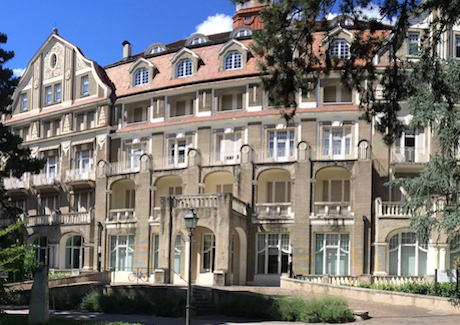
Contact Person
Andreas Dietl
Fachoberschule für Tourismus und Biotechnologie „Marie Curie“
Mazziniplatz 1
39012 Meran, Italy
andreas.dietl@schule.suedtirol.it
Liechtensteinisches Gymnasium
Liechtensteinisches Gymnasium (LG) was founded by Marist brothers as the Collegium Marianum in Vaduz in 1937, and the first students passed their Matura (school-leaving exam) in 1943. Since 1981, LG Vaduz has been a public school, the only public secondary school in Liechtenstein. The school moved to the current building in 1972. Major changes in the last years include the reduction of school years from 8 to 7 years, and new profiles in grades 9 to 12. Ever since 1969, girls are also allowed to attend the Gymnasium and graduate to be able to go to university afterwards. Eugen Nägele is the current principal (“Rektor”) at LG Vaduz. He is accompanied by two vice principals, Christian Marti and Roland Hilti. The number of students at LG Vaduz has increased continually. There are currently 720 students at our school. On average, there are 19 students per class.
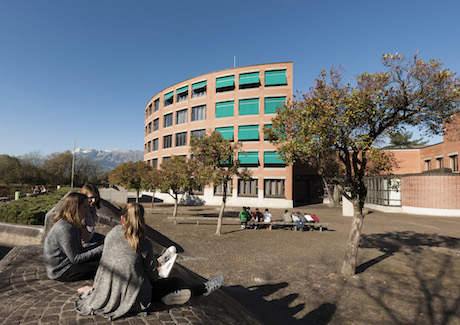
Contact Person
Matthias Gappisch
Liechtensteinisches Gymnasium
Marianumstrasse 45
9490 Vaduz, Liechteinstein
gappisch.matthias@LG-vaduz.li
II. gimnazija Maribor
II. gimnazija Maribor was founded in 1949 as a state school, and has remained as such until today. With excellent Leaving Certificate results in the national and IB programs, and with more than 70 extra-curricular activities, it ranks among the best of Slovenian schools. It fulfills its mission, which is the development of creativity, self-initiative, independence and solidarity.
Our school offers The National Grammar School Programme, the International Baccalaureate Diploma Programme and The National Grammar School Programme – Sport Classes. The National Grammar School Programme is a four-year educational program aimed at preparing students for further education at university level. All classes (with the exception of foreign languages) are taught in Slovene. Foreign students are offered additional Slovene courses so that they will be able to follow lessons taught in Slovene quicker and more efficiently. The International Baccalaureate Diploma Programme has been running since 1990 and is taught in English. Since that time more than 500 students have graduated from the program, and the success rate is 100 % with an average of 40 points (the maximum is 45). Another feature of II. gimnazija Maribor is the Sport Classes Programme, which provides education for top athletes. Seven participants in the Winter and Summer Olympics have followed this program.
800 students, taught by 70 teachers, attend our school. The well-equipped classrooms, gym, auditorium and over 200 computers provide students with an excellent working environment.
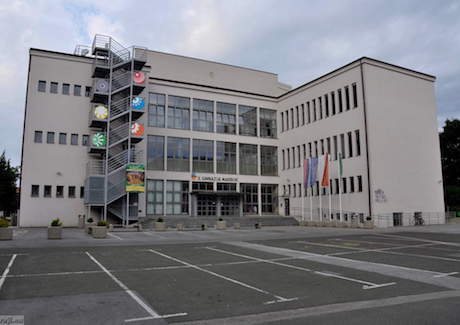
Contact Person
Barbara Bedenik
II gimnazija Maribor
Trg Milosa Zidanska 1
2000 Maribor, Slovenia
barbara.bedenik@druga.si
Rudolf Maister Grammar and Vocational School Kamnik
The School Center of Rudolf Maister (GSŠRM) is located in the center of Kamnik, which is in central Slovenia, 20 km from the Slovene capital city Ljubljana. Our school center welcomed its first grammar school students in 1949, which was of crucial importance for the future development of the Municipality of Kamnik. It was named after General Rudolf Maister in 1970, the year which also marks the beginning of educational programs of economics. In 1996 the grammar school was restructured into School Center of Rudolf Maister, which had two separate organization units: Grammar School and Secondary School of Economics. In 2010, the two programs were joined by the program of Pre-school Education.
Through all this time the school has earned an outstanding reputation. It is known for good grades in the school leaving examinations, involved in many projects like MEP (Model European Parliament) and YPAC, it enables traveling to London, Sweden and the Czech Republic, maintains exchanges with German and Italian schools and offers English and German reading badges. Since we cherish good cooperations with other European high schools, we enjoy being involved in such projects as YPAC.
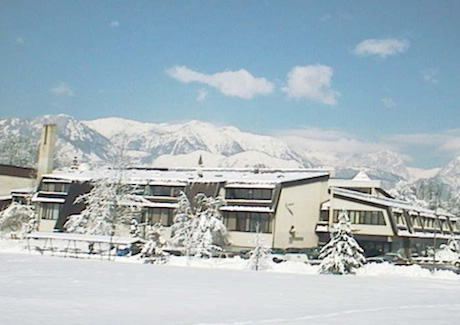
Contact Person
Renata Capuder Mermal
Gimnazija Kamnik
Novi trg 41 a
1241 Kamnik, Slovenia
renata.capuder@guest.arnes.si
